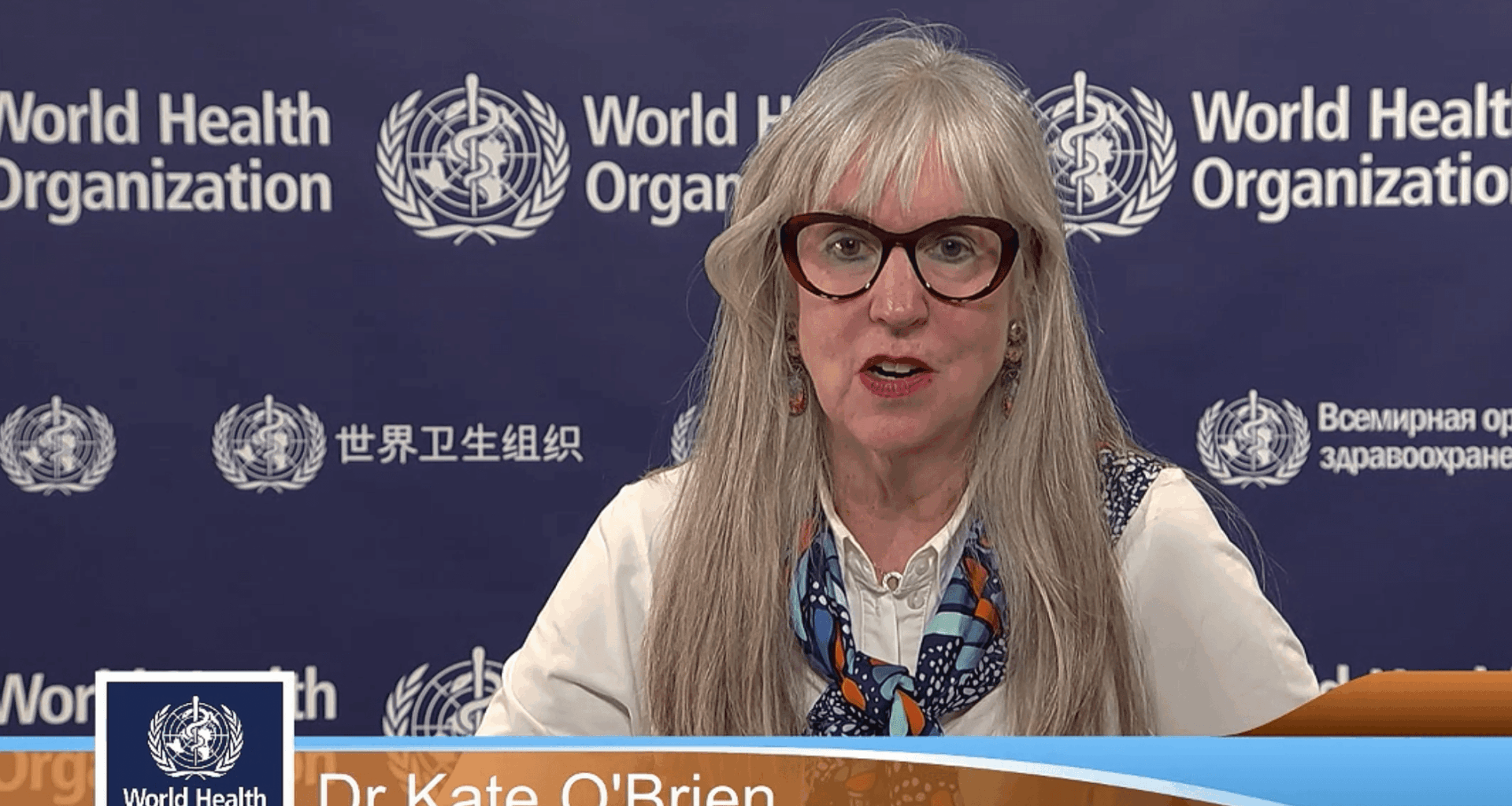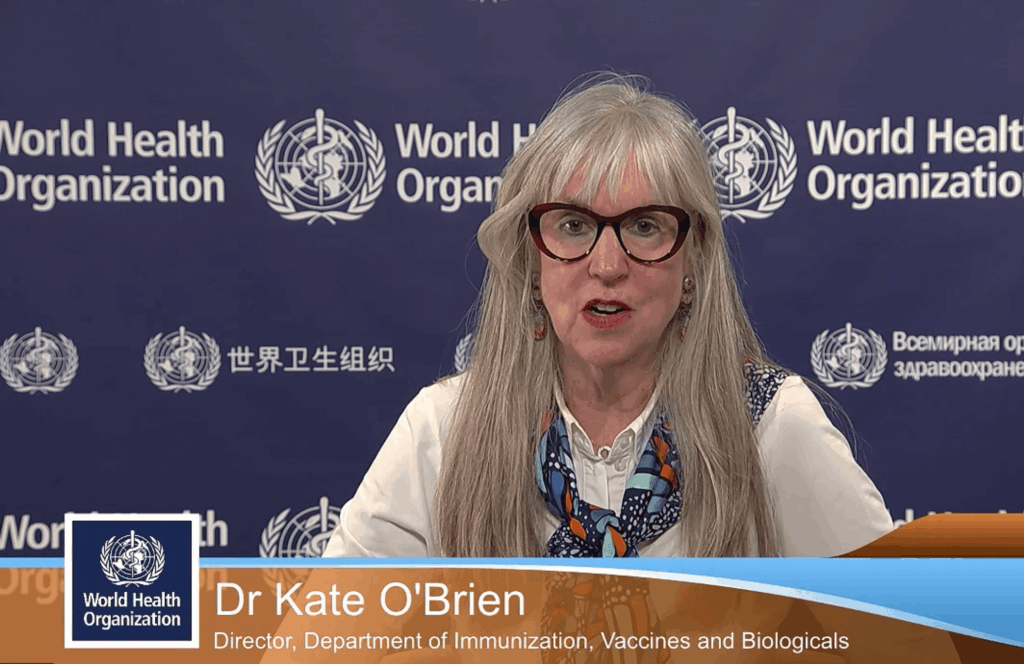 Dr Kate O’Brien, WHO director of Immunisation, Vaccines and Biologicals
Dr Kate O’Brien, WHO director of Immunisation, Vaccines and Biologicals
Vaccinations have saved the lives of an estimated 17 million people between 2021 and 2024 – but global immunisation programmes face several challenges, according to an assessment by the World Health Organization’s (WHO) Strategic Advisory Group of Experts (SAGE) on Immunisation.
Dr Kate O’Brien, WHO director of Immunisation, Vaccines and Biologicals, acknowledged the “deep commitment of countries and communities around the world to vaccination” at a media briefing on Tuesday following SAGE’s biannual meeting.
While vaccination coverage has largely rebounded to pre-pandemic levels, “backsliding in Gavi-ineligible middle-income countries, and an increasing number of people living in fragile and conflict settings, threaten the global gains”, according to the WHO.
Immunisation programmes are being tested by “geopolitical instability”, constrained global and national budgets, and “shifting health architectures”.
In addition, “the information and trust crisis threatens vaccine confidence and uptake”, WHO noted.
However, O’Brien stressed that “the vast majority of parents are strongly supportive of vaccines”.
“The rollout of malaria vaccine on the African continent, one of the fastest rollouts that we’ve seen, is a testament to the impact of vaccines, and the deep desire for people to protect their children to family members from infectious diseases that are otherwise a daily occurrence,” she said.
Four malaria vaccine doses affirmed as ‘optimal’
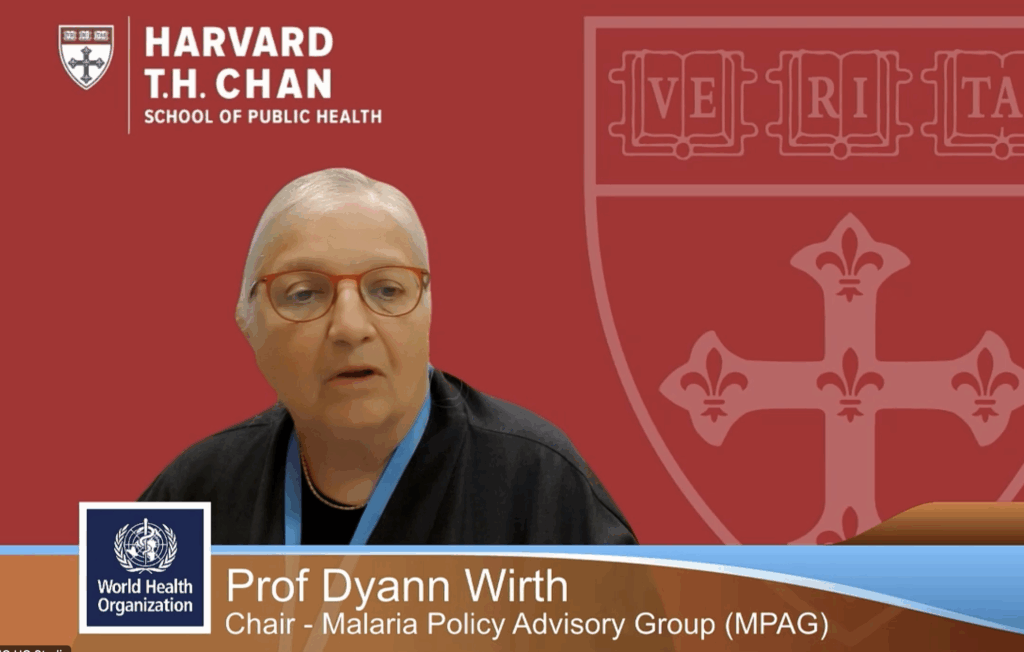 Harvard Professor Dyann Wirth, chair of the Malaria Policy Advisory Group (MPAG)
Harvard Professor Dyann Wirth, chair of the Malaria Policy Advisory Group (MPAG)
SAGE confirmed that four doses of the malaria vaccine, known as RTS,S/AS01, provide optimal protection over three doses in preventing the rebound of severe malaria.
This decision was informed by a four-year study, which included children under five years of age, conducted in Ghana, Kenya and Malawi, where the vaccine is being rolled out as part of the routine childhood immunisation programmes.
“The fourth dose reduced severe malaria by 54%, with a 30% incremental effectiveness, above that provided by three doses,” said Harvard Professor Dyann Wirth, chair of the Malaria Policy Advisory Group (MPAG).
“The cumulative effectiveness of the four doses in reducing cerebral malaria, one of the most severe and deadly manifestations, was 74%,” added Wirth. Three doses reduced cerebral malaria by 48%.
“While three doses provide safe and effective protection against clinical malaria and severe disease, the incremental effectiveness of the fourth dose against severe disease was substantial,” she added.
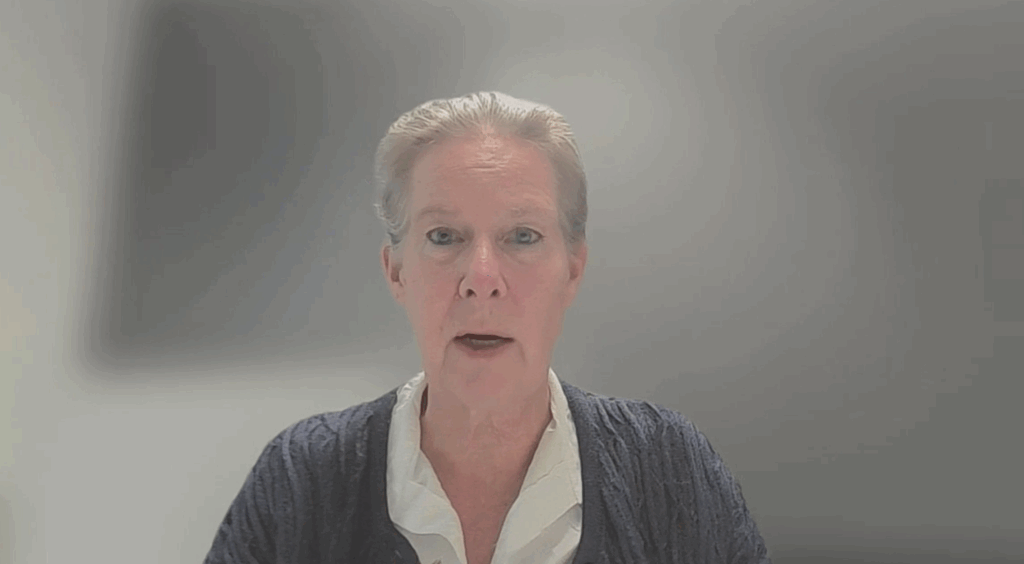 SAGE chair Dr Hanna Nohynek
SAGE chair Dr Hanna Nohynek
SAGE chair Dr Hanna Nohynek said at least 20 countries were using or considering the malaria vaccine.
SAGE “supported the expanded use of the novel oral poliovirus vaccine (OPV) to reduce vaccine-derived polio virus transmission in select geographies with persistent transmission of this particular virus”, said Nohynek.
It also recommended the use of “fractional doses of Sabin-based inactivated poliovirus vaccines (IPV)”.
Dr Joachim Hombach, SAGE’s executive secretary, highlighted the importance of countries “establishing programmes to support trust in vaccines, the safety of vaccines and the impact that they have, that they are “one of the most cost-effective health interventions”.
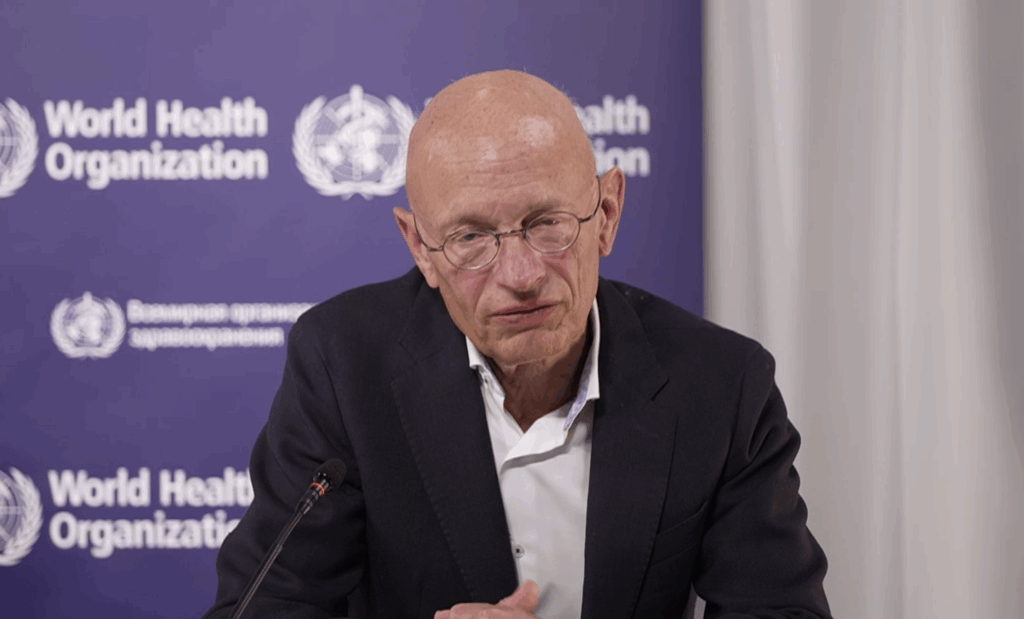 Dr Joachim Hombach, SAGE’s executive secretary
Dr Joachim Hombach, SAGE’s executive secretary
O’Brien stressed that “the economic return on investment of vaccines is probably one of the highest available”.
Over the past 50 years, vaccines have saved approximately 154 million lives – and the measles vaccine is responsible for saving around 60% of these deaths, she noted.
SAGE also reported a decline in reported COVID-19 cases and deaths in the past year, along with low annual vaccination uptake “mainly limited to high-income countries in the WHO regions of Europe, the Americas and the Western Pacific in 2024”.
Variant-adapted COVID-19 vaccines show “moderate” effectiveness in preventing COVID-19 cases and hospitalizations, though protection wanes by six months, said SAGE.
“SAGE recommended an updated review of the evidence on the effectiveness of COVID-19 vaccines during the Omicron period, with a focus on the effect of vaccination in pregnancy on birth outcomes and infant COVID-19 to reassess the validity of recommendation on vaccination during pregnancy, in the current epidemiological context,” said the body.
SAGE also noted that there are 16 candidate tuberculosis vaccines in clinical development, five of which are in phase 3 trials. One, known as M72/ASO1E, could be licensed as early as 2028, depending on trial results.
Combat the infodemic in health information and support health policy reporting from the global South. Our growing network of journalists in Africa, Asia, Geneva and New York connect the dots between regional realities and the big global debates, with evidence-based, open access news and analysis. To make a personal or organisational contribution click here on PayPal.

